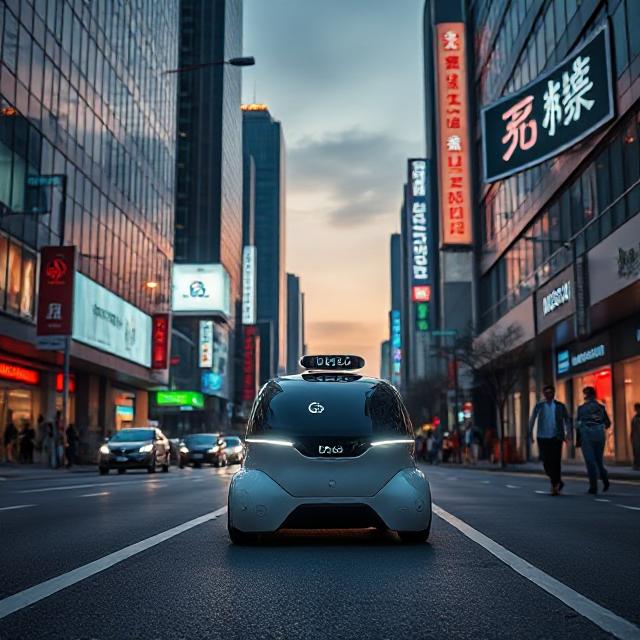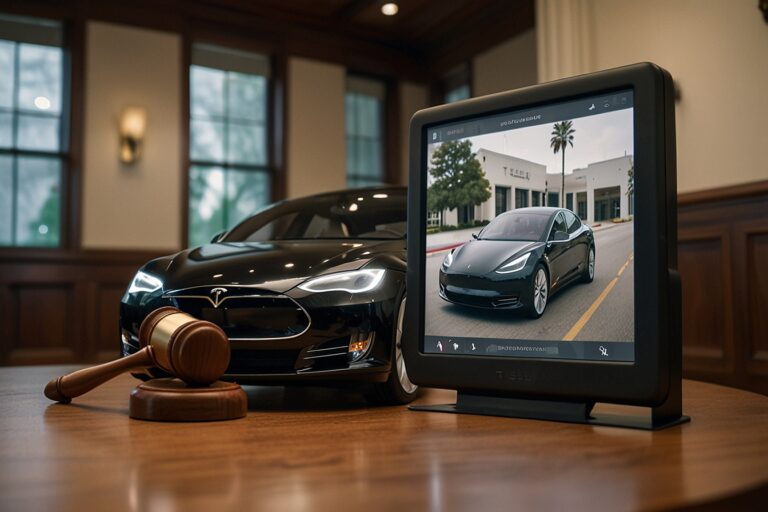
TL;DR
- Uber and Baidu enter a multi-year partnership to deploy Apollo Go robotaxis.
- Initial rollouts will begin in Asia and the Middle East later in 2025.
- The agreement adds to Uber’s growing AV (autonomous vehicle) portfolio alongside Waymo, Volkswagen, and WeRide.
- Riders may be offered Baidu’s Apollo Go vehicles through the Uber app, though not by direct request initially.
Uber Expands Global AV Network with Baidu
In a move to stay ahead in the autonomous vehicle race, Uber has signed a new deal with Baidu, one of China’s top AI and AV developers. The agreement involves deploying thousands of Baidu’s Apollo Go autonomous vehicles through Uber’s platform in global markets outside the U.S. and mainland China.
According to the joint statement, deployments will begin in Asia and the Middle East later this year.
Apollo Go Integration: A Gradual Rollout Strategy
Initially, Uber riders won’t be able to directly select an Apollo Go robotaxi. Instead, they “may be presented with the option” to have their trip fulfilled by Baidu’s AV, aligning with how other Uber AV integrations operate.
Baidu’s Apollo Go is already active in several Chinese cities, with fully driverless operations and AI-driven route optimization. The company sees this Uber deal as an opportunity to expand its global footprint beyond Chinese borders for the first time.
Uber’s Rapid Autonomous Vehicle Expansion Strategy
Uber has accelerated its AV partnerships significantly in 2025. Just this year:
- It announced a $100 million investment in WeRide, another Chinese AV developer (source).
- It partnered with Waymo, May Mobility, and Volkswagen to operate driverless fleets in select cities.
- Rumors persist that Uber may assist founder Travis Kalanick in a potential takeover bid for Pony.ai (source).
These moves highlight Uber’s strategy to hedge against disruption by robotaxis while ensuring its platform remains the dominant global mobility hub—even as human-driven rides are gradually replaced by AV fleets.
Uber’s 2025 AV Strategy at a Glance
| Company Partnered | Region of Focus | Type of Partnership | Launch Status |
| Baidu (Apollo Go) | Asia & Middle East | Multi-year strategic rollout | Deployments begin 2025 |
| WeRide | Global expansion (China-based) | $100M equity investment | Ongoing testing |
| Waymo | U.S. metro areas | AV fleet integration | Active |
| May Mobility | North America | Pilot program | In early rollout |
| Volkswagen | Europe & LatAm | Fleet collaboration | Ongoing |
Baidu’s Global Ambition Through Apollo Go
Baidu’s expansion via Uber could significantly raise the profile of its Apollo Go robotaxi program. The company’s robotaxis have already completed over 10 million autonomous miles, and it holds one of the largest AV patents portfolios globally.
By tapping into Uber’s massive rider base, Baidu aims to test, scale, and validate Apollo Go in diverse urban environments outside of China, especially in cities eager to adopt smart mobility frameworks.
Strategic Implications: What This Means for the Ride-Hailing Industry
Uber’s shift toward autonomous partnerships reflects the company’s long-term strategy to reduce driver-related costs and regulatory burdens. It’s a bold step toward an AV-dominated ride-hailing future, where fleet operators and AI developers hold more influence than traditional gig drivers.
For Baidu, this marks its first robotaxi expansion outside China—leveraging Uber’s infrastructure rather than building one from scratch. It also sidesteps geopolitical and regulatory frictions by avoiding the U.S. and mainland China.






